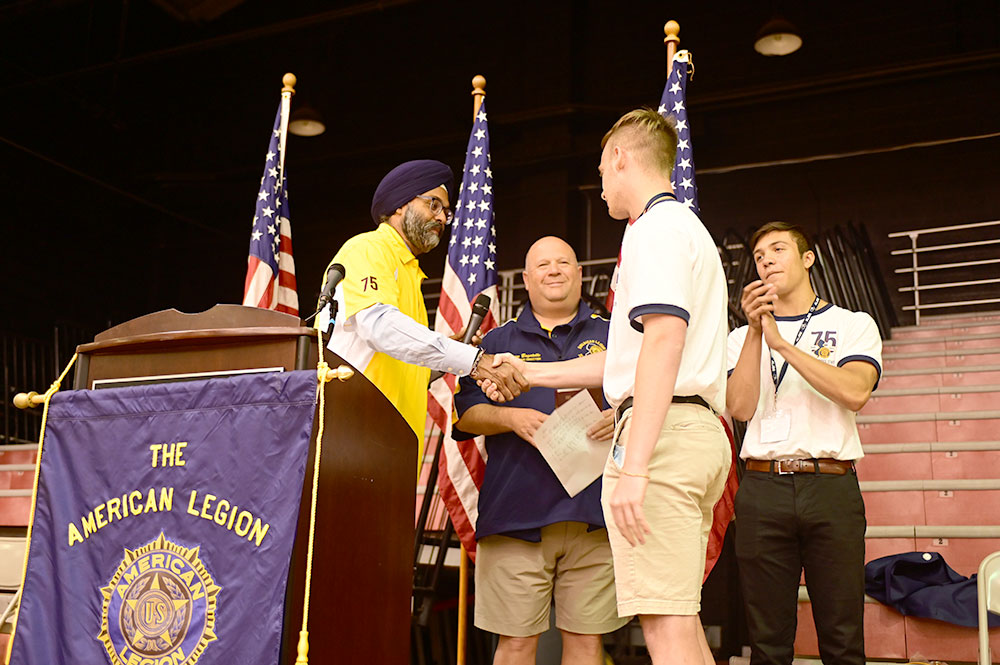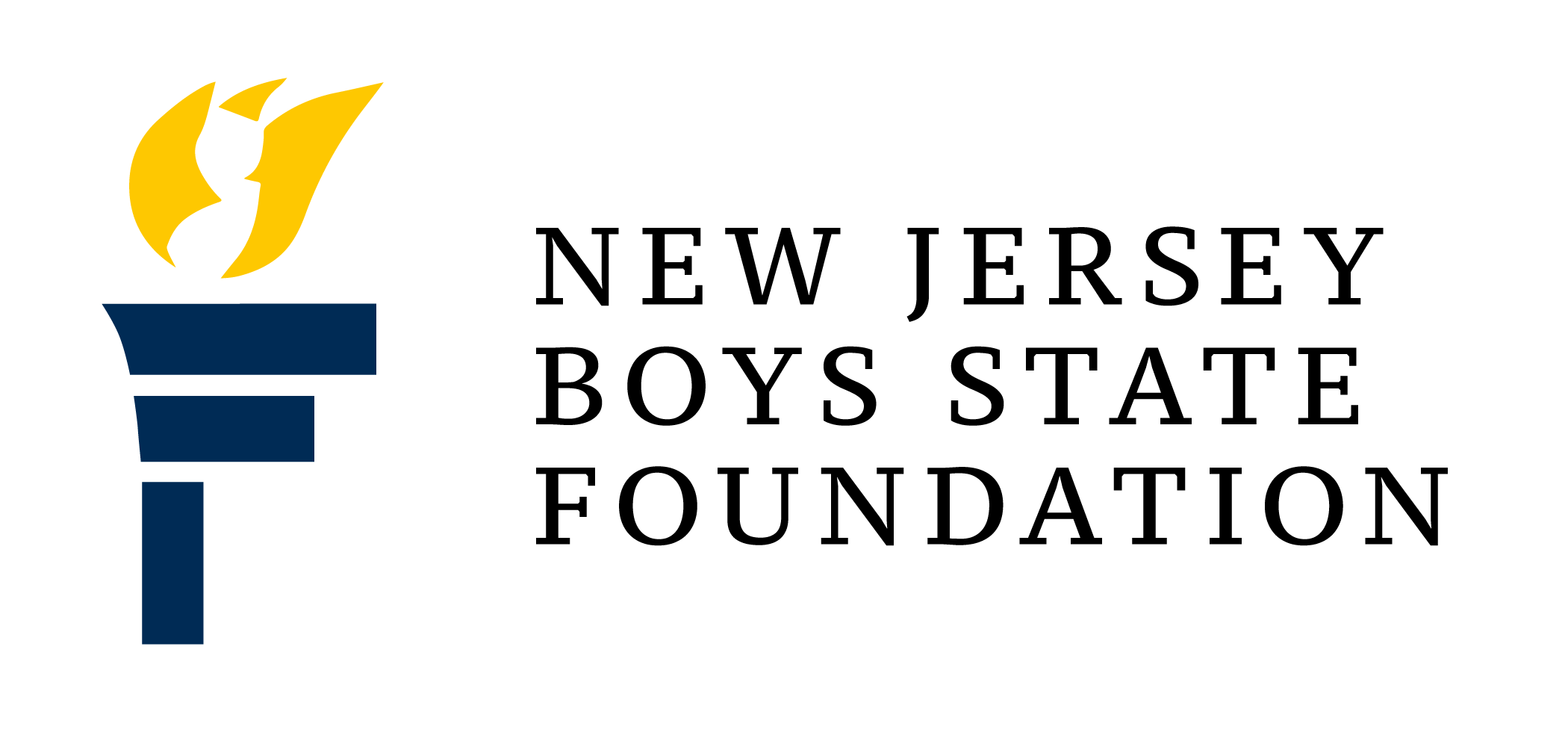News Archive

Last Wednesday, the Jersey Boys State Band (who you can hear on the Graduation Concert) played the theme to the TV show The Mandalorian. The show's primary arc in its first two seasons has been to take one of the best lone warriors in the galaxy and give him a baby to care for. Over the course of the two seasons, the laconic, rule-keeping central character searches for someone else to parent the child, knowing that his lifestyle and species are not a match for the child's. The Mandalorian softens and bends his rules, often prioritizing the good of the baby over his own. By the time our hero finds a suitable parent for the child, he has grown from his connection to it. Although he is still alone, he is slowly learning what it means to be responsible for something else and part of something else.
This struggle between one's own fulfillment and responsibilities is one of the defining challenges of adulthood, especially in the independence-loving West. Americans have always leaned towards independence and opportunity to improve oneself being some of the highest goals. The cowboy is our icon, riding alone throughout the harsh, unforgiving western climate, enduring the elements but charting his own path. Our heroes are the self-made men and women, those who bet on themselves and carved their own path forward. (We kind of did that to start our country too.) Duty is hard for us to learn and internalize.
But duty can be learned. Admiral Lord Nelson cannot send out his famous "England expects that every man shall do his D-U-T-Y" message at the Battle of Trafalgar without some expectation that the sailors were disciplined enough to do it. The discipline comes through practice. In the military, this comes through basic training staples of drills, physical exercise, weapons training, and intense challenges from commanding officers. In medicine, it comes through years spent in classrooms, observations, and carefully-monitored practice, plus a dose of midnight shifts. To be able to do something well, you have to practice it.
This past week at American Legion Jersey Boys State, we've been practicing things. We haven't just been practicing politics. That gets the most focus, but it's only part of the picture. We've also practiced having respect for the military and law enforcement and being able to be a citizen in a country that doesn't always align with your beliefs and opinions. We've also practiced prioritizing the good of your city and ordering your time and interests towards its good. When our statesmen leave this program, they're better citizens, not just better politicians.
We do this at an interesting point in their lives, too. Young men believe themselves immortal. They are prone to feats of grandeur borne from a mixture of hubris, overconfidence, and a lack of understanding of physics. They are remarkably resilient (which is good given some of the failed attempts at grandeur) and have seemingly limitless energy. They are just starting to come into their own, starting to be able to understand adult reason, and starting to be able to be self-aware. In a few years, they will be fully on their own. But at sixteen, they are not quite there yet, even though their brain wishes them to be. In this frame of mind and body, they step though the doors of ALJBS and begin their week.
To be a little presumptuous, this is the place where boys start to become men. ALJBS is a rite of passage, a signal that this young man is being treated as a /man/. For many, it's the first time they've been away from their family for a length of time and had to be on their own.
Rites of passage are not common in our society, but they remain an interesting part of many cultures. Through the ritual, the group vets and verifies an individual. The group has had to teach the individual, making it partly a reflection of the group as well as the individual, but it signals that the individual is able to be part of the group rather than under their care. In a way, the family is a primary group, and a father's approval is the primary rite of passage for many. And it's a test for him too. Sons keep the father's name; the father's impact on his son is part of his legacy. It's the thing he does that outlives him when he's gone, the seeds in the garden he never gets to see. Men can be creatures who roam in search of opportunity and glory, but fatherhood forces constraints on them. Suddenly, his time and attention must be focused on something else, something much larger than him.
ALJBS has always begun on Father's Day, forever linking the holiday with it. It might seem like a fun coincidence, but the link between the two becomes more apparent at the end of the program, when all of us start thinking about the meaning of what we just did.
Fathers train their sons to follow after them, providing the example that the sons will aspire to. Fathers are traditionally the initiators, the ones who go out and put food on the table, who take the responsibility and the danger, and build structures for shelter, thriving, and enjoyment. We talked earlier in the week about knowing how to use your strength in service of others, and fatherhood does that to many men.
When we take your sons on Father's Day, we do that with respect and seriousness. You are placing your legacy into our trust, and you are trusting that the legacy of our program will enhance your son's life.
Our program this past week has aimed to do just that by continuing to teach and train young men. At this point of transition, your young men get to have other male role models who have gone through that process, have become strong members of society, and are worthy of emulating. We underscore the values of citizenship and committing to the good of others, even if the statesmen won't see the effects. Our staff volunteers a full week of vacation to work the program so that these statesmen get to be part of something. And ultimately, we get to shape the future of thousands and have an impact bigger than just pushing the rock up the hill ourselves. What we do stands in continuity with the training you, the parents, and you, the community, have done with these young men.
And as you receive back your young men from our care, we hope you see the changes. It's only a week, but it's a deeply meaningful one. Just look at how many staff come back year after year. Director Bagatelle has been with the program for forty years. Our Best Statesmen award is named for someone who gave fifty-four years to ALJBS. Many of our speakers are former ALJBS alumni whose experience here shaped their futures. And many of us will run into people years later who tell us that "Because of you, I decided to run for local office" or "I decided to start a business because of Boys State."
George R.R. Martin wrote that "a reader lives a thousand lives," and we would add that a teacher shapes a thousand lives. ALJBS shapes a thousand lives every year. We've shaped over 50,000 lives in our seventy-five years of history. We hear the call of the poet and hold high the torch until it is our turn to cast it to someone else. We do it because the values of citizenship, leadership, and integrity don't teach themselves aren't taught by one individual alone at one time. They take constant effort from all of us and each of us, sacrificially, to ensure that they continue.
We're going to be doing it again next year. It'll be a new thousand young men, but the lessons never change. Why don't you join us? If you'd like to come back on staff, fill out a JA application today. It will be a different experience, but it will continue shaping you. Or would you like to donate to us and help keep our mission alive? Please consider helping the work of our Foundation or coming out to one of our events this year.
When we sat down to decide whether to have this year's session, there was a lot of debate on the staff. The final vote was not remotely unanimous. But we did it because we love the program and the values it teaches. Once we got here and started, we felt refreshed. There weren't as many as we've had last years, but it didn't diminish our joy at all. The discipline paid off. We hope it did for you too, and we look forward to finding out in the future. As for next year, we'll end as we always do:
Let's do this again soon, gentlemen, with others.


